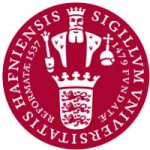项目介绍
The Department of the Classics has been at the forefront of graduate education in Classics for well over a century. It offers a variety of approaches, emphasizing a wide range of knowledge and skills rather than a narrow early specialization. The department offers doctoral degrees in ancient history, Byzantine Greek, classical archaeology, classical philology, classical philosophy, medieval Latin, and modern Greek. All candidates admitted to the PhD programs are expected to enter with competence in the pertinent languages, ancient and modern, on which they will build in the course of their graduate study.
Though the department views the training of future university teachers as a major part of its mandate, its primary concern is to foster as thorough an expertise as possible in those classical, medieval, and modern fields which are centered on Greek and Latin language and literature. For this reason, the department emphasizes the acquisition not only of knowledge, but also of skills—in teaching, in analysis, in research—which will enable its graduates to find careers both within and outside the traditional fields. Great emphasis is laid in the process of graduate admission on the adaptability of students to a flexible job market, and the department assists the career development of its students with placement advice and other practical assistance with the application process.
The department encourages students to develop diverse interests. For example, in working towards a degree in classical philology, students may come to emphasize one language over the other and may explore interests in archaeology, history and prehistory, law, linguistics, literary criticism, the medieval world both western and eastern, mythography, philology, philosophy, or religion. Students in other tracks are similarly encouraged to diversify their interests. The department also offers specialized training in such disciplines as papyrology, epigraphy, palaeography, and numismatics. The resources of other Harvard departments are open to those interested in other ancient languages and scripts, the history of science, the relations of the Greeks and the Romans with other ancient cultures, and the reception of classical culture in subsequent periods. Students of ancient history and classical archaeology are required to spend time abroad, and funding is available to support summer travel for research purposes for students in all the PhD tracks.
Ideally, the doctoral program is conceived as lasting six years.
Admissions Requirements
When applying online, prospective students must include a recent sample of written work, such as a term paper, senior thesis, or master’s essay, ideally 15 pages in length.
Visit the Department of the Classics for more information and GSAS Policies for program requirements.
Doctor of Philosophy in Ancient History
A bachelor’s degree in classics (or one in history combined with substantial study of Greek and Latin) represents the best preparation for the study of ancient history, which is here understood to mean Greek history from the Mycenaean period to Roman times, and Roman history from the beginnings to late antiquity. Students applying to study ancient history in the Department of the Classics must have competence in both Greek and Latin sufficient to take upper-level departmental courses in one of these languages (the “major language”), and above the beginning level in the other (the “minor language”). Those wishing to study ancient history at Harvard with less emphasis on languages and texts, and more on other fields of history such as medieval or Byzantine, should note that the Department of History also offers ancient history as a field in its PhD program.
Some preparation in German and either French or Italian is also advised before admission to the program. In addition, entering students should also have taken the equivalent of two one-term introductory surveys in Greek history and in Roman history.
Doctor of Philosophy in Byzantine Greek
Prospective students must have competence in both Greek and Latin sufficient to allow them to take upper-level courses on entering graduate school.
Doctor of Philosophy in Classical Archaeology
The field of classical archaeology is understood to cover Aegean, Greek, Etruscan, and Roman art and archaeology. Students may also work on a cross-departmental basis in related fields such as Egyptian, Near Eastern, Anatolian, Punic, Byzantine, and other areas of European art and archaeology.
Entering students are expected to have competence in both Greek and Latin sufficient to take upper-level courses in one of these languages (the “major language”), and above the beginning level of the other (the “minor language”). In exceptional circumstances and with the approval of the director of graduate studies, substitution of another ancient language in the place of the minor language may be arranged. Some preparation in German and either French or Italian should be undertaken before admission to the program.
Doctor of Philosophy in Classical Philology
Prospective students must have competence in both Greek and Latin sufficient to allow them to take upper-level courses on entering graduate school.
Doctor of Philosophy in Classical Philosophy
The purpose of the program in classical philosophy is to provide the student with the basic training in both philosophy and classical philology necessary for work in this field. Students who wish their primary grounding to be in the classics should apply to the program in classical philosophy; those who wish their primary grounding to be in philosophy should apply to the parallel program in the Department of Philosophy.
Entering students are expected to have competence in Greek and Latin sufficient to take upper-level courses in Greek and above the beginning level in Latin on entering graduate school.
Doctor of Philosophy in Medieval Latin
Prospective students must have competence in both Greek and Latin sufficient to allow them to take upper-level courses on entering graduate school.
Doctor of Philosophy in Modern Greek
Harvard libraries house some 80,000 volumes in modern Greek language, literature, history, and folklore. The collection dates back to the early 19th century and is the largest and richest in the world outside of Greece. Its uniqueness owes much to Harvard scholars, above all to the efforts of C. C. Felton, E. A. Sophokles, C. Whitman, and A. B. Lord. Areas of outstanding excellence include rare 19th-century periodicals; first editions of major and minor poets and prose-writers of the 19th and 20th centuries; rare printed editions and manuscripts of liturgical and vernacular texts of the 16th to 18th centuries from Venice, Constantinople, Jassy, Bucharest, Jerusalem (many directly related to the rise of the vernacular and to Cretan Renaissance literature); a virtually complete set of first editions of folksong and folklore publications (including periodicals) in Greek, French, Italian, German, and English; the invaluable Whitman/Rinvolucri collection of karagiozes (shadow puppets); and above all the unique and distinctive Parry/Lord and Notopoulos archives of folk music and folk poetry. In addition, Boston libraries (including Boston University) contain largely unresearched materials on the early 19th century Protestant missions to Greece, while the Hellenic College, Brookline, houses an excellent selection of books related to church history.
Theses & Dissertations
Theses & Dissertations for The Classics
The Classics Faculty
联系方式
电话: (617) 495-1000相关项目推荐
KD博士实时收录全球顶尖院校的博士项目,总有一个项目等着你!






